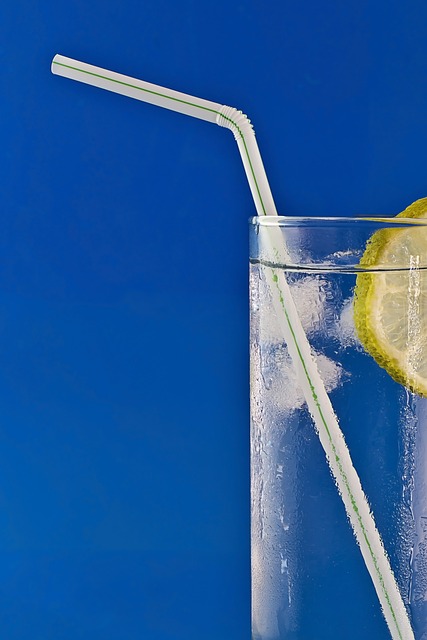Cold plunging, or immersing yourself in cold water, is a popular method to boost immune health. This practice triggers various physiological responses, including increased blood flow, activation of immune cells, and endorphin release, reducing inflammation and enhancing leukocyte production. It's recommended to keep water temperatures between 50-59°F (10-15°C), start with brief durations, and properly breathe during plunges for safety. Cold therapy supports immune function, improves circulation, reduces inflammation, strengthens skin barriers, and enhances overall wellness, especially during colder seasons. Always consult a healthcare provider before starting if you have health conditions or are under the influence of substances.
Looking to boost your immune system naturally? Cold plunges, or cold water immersions, are gaining popularity as an effective way to support overall health. This practice involves briefly exposing yourself to cold water, offering a range of benefits from reduced inflammation to increased circulation. In this article, we’ll explore the science behind cold therapy, provide safe practices for beginners, and guide you on incorporating these powerful immune-boosting sessions into your wellness routine.
Understanding Cold Plunges and Their Impact on the Immune System
Cold plunges, also known as cold water therapy or cryotherapy, involve brief exposure to cold temperatures, typically through immersing oneself in cold water. This practice has gained popularity for its potential health benefits, especially in supporting immune health. When you subject your body to a cold plunge, it triggers a series of physiological responses that can have significant effects on your immune system.
The immersion in cold water stimulates blood flow back towards the core of your body, which increases circulation and activates various immune cells. This process enhances the body’s natural defense mechanisms by boosting the production of white blood cells, known as leukocytes, which play a crucial role in fighting off infections. Additionally, cold exposure can reduce inflammation, a contributing factor to many chronic illnesses, and promote the release of endorphins, providing a sense of well-being and potentially strengthening the immune response over time.
The Science Behind Cold Therapy and Its Benefits for Immunity
Cold therapy, particularly through practices like cold plunges or immersing oneself in cold water, has gained attention for its potential to boost immune health. The science behind this suggests that exposing the body to cold temperatures triggers a series of beneficial physiological responses. When you immerse yourself in a cold plunge, your core temperature drops, stimulating a stress response in your body. This response initiates a surge of white blood cells and increases the production of norepinephrine, a hormone known for its immune-boosting properties.
Regular exposure to cold water can enhance your body’s natural anti-inflammatory responses and promote the release of endorphins, contributing to a stronger immune system. Additionally, cold therapy is believed to improve blood circulation, helping white blood cells move more efficiently throughout the body to fight off potential pathogens. This practice has been shown to reduce inflammation, alleviate stress, and support overall immune function, making it a growing trend in natural health circles as a way to maintain wellness during changing seasons or stressful times.
Safe Practices and Precautions for Cold Water Immersion
When practicing cold plunges as a means to support immune health, it’s paramount to observe safe practices and precautions. Always ensure the water temperature is well below your body temperature, typically around 50-59°F (10-15°C), to avoid shock or discomfort. Start with brief exposures of 30 seconds to a minute, gradually increasing duration as your body adapts. Proper breathing techniques are crucial; inhale deeply before plunging and exhale forcefully during the immersion to enhance circulation and stress response.
Choose safe locations free from hazards and ensure privacy. Consider using a friend or professional’s supervision for the first few attempts to prevent accidents. For individuals with certain health conditions, such as heart problems or severe hypertension, consulting a healthcare provider before attempting cold water therapy is essential. Avoid cold plunges when under the influence of substances or medications that may impair judgment or reaction time.
Incorporating Cold Plunges into Your Routine for Optimal Immune Support
Incorporating cold plunges into your daily routine can be a powerful tool in supporting and enhancing your immune system’s resilience. Cold water therapy, such as immersing yourself in a cold plunge or shower, has been shown to stimulate various physiological responses that benefit overall health. When you expose your body to cold, it triggers a release of hormones like norepinephrine and cortisol, which can increase white blood cell production and improve circulation. This boost in immunity is crucial during colder months when viral infections are more prevalent.
Regular cold exposure also helps reduce inflammation, strengthens the skin’s barrier function, and improves nerve function. By integrating cold plunges into your wellness routine, you’re not just providing a temporary refresh; you’re nurturing your body’s natural defense mechanisms. Whether it’s a quick dip in an ice bath or a refreshing cold shower, these practices can be easily incorporated into your morning or post-workout rituals, offering both immediate and long-term benefits for immune health.
Cold plunging offers a simple yet powerful way to bolster your immune system through cold water therapy. By incorporating safe practices and understanding the science behind it, you can harness the benefits of cold exposure for optimal health. Whether as a quick dip or a more extended immersion, these techniques have been shown to enhance immunity and promote overall well-being. Remember, with proper precautions, cold plunges can be a game-changer in your journey towards a stronger, healthier immune response.
